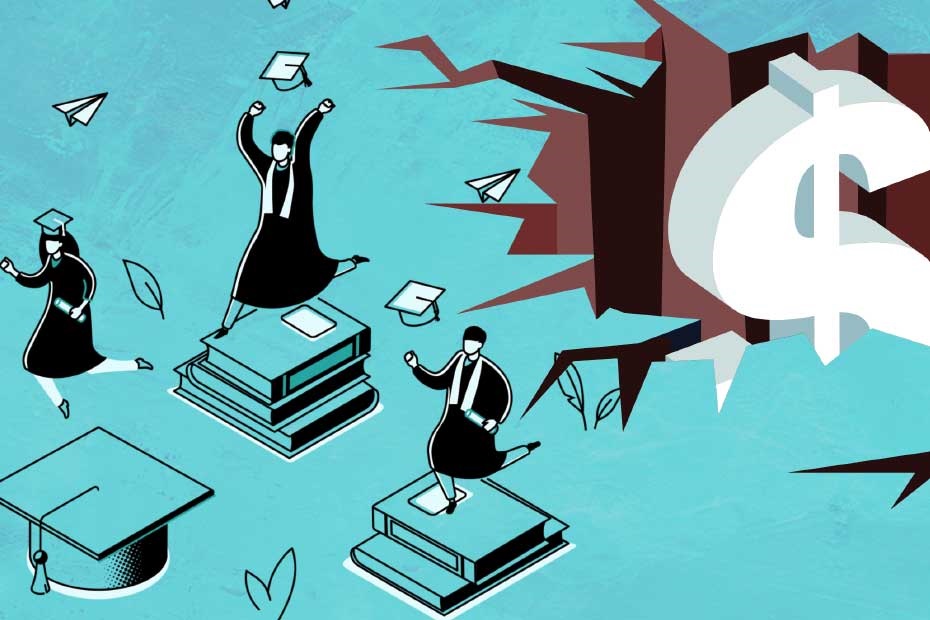Published August 1, 2023 • 4 Min Read
Money plays many roles, and it’s important to understand what money can do beyond everyday purchases. Money plays an important role in Canadians’ day-to-day lives and helps keep the economy running smoothly. But money is so much more than that.
Before currency existed in Canada, people relied on a barter system to get what they needed in exchange for the goods and services offered by another. Many of Canada’s indigenous groups had well-established barter systems, so effective that European settlers adopted the bartering approach when they first arrived. However, as the population of Canada began to grow, and trade expanded, a new system was needed, and the Canadian Dollar was adopted in 1858.
Money now acts as a store of value to facilitate the daily transactions Canadians make to obtain the items they want or need. Without money, securing goods and services would be tougher.
Money serves three main functions:
-
Store of value: Money is considered a “store of value.” It can be tucked away or placed into savings and holds value when it’s withdrawn and exchanged for goods or services. Store of value is an important function, as it helps facilitate trade today and in the future.
-
Medium of exchange: As a medium of exchange, money acts as an intermediary between what one person has and what another person wants. The barter system has limitations as it requires the perfect alignment of two people, each wanting what the other person has to offer simultaneously. With money as the medium of exchange, daily transactions are completed with greater ease and simplicity.
-
Unit of accounting: Because money is used as a medium of exchange for goods and services, it has the ability to track the current price of goods and services over time. For example, in inflationary times, the loaf of bread an individual once purchased for two dollars may now cost three dollars. The toonie is still just a toonie, but how much it can purchase has declined, and the new market value — the unit of accounting — for that loaf of bread is easily understood.
How does money impact the economy?
-
Jobs and wages: Most Canadians receive money their job in the form of income. The money they receive is then spent on essential items such as housing, healthcare and food, as well as on non-essential goods and services as they desire. Every time a dollar changes hands, whether to buy a home, groceries or a vacation, it impacts the economy. It supports and provides money for other individuals and businesses. The flow of cash is one element helping drive the economy.
-
Savings and investments: As Canadians receive their pay and their essential expenses have been covered, money remaining is often kept in the bank or invested in businesses through the stock market. Investing and saving can help an individual’s money grow, but also can help companies grow and expand through investment.
-
Spending patterns: As individuals accumulate more money through earnings or savings, their purchasing power increases. This allows greater freedom and choice. Individuals tend to borrow more when low interest rates increase their purchasing power. This can impact consumption patterns, which then impacts manufacturing sectors.
-
Government and taxes: The government collects money through various sources such as income taxes on individual’s wages earned and goods and services, to name a few. Taxes are an important source of revenue for the Canadian government. They are used to provide Canadians with services such as healthcare, education, and basic infrastructure such as highways and maintaining safety and order within the communities.
While the barter system was once an effective method to enable trade between parties, which laid the foundation for commerce in Canada, money is now the prevailing medium of exchange for commerce in the modern world.
This article is intended as general information only and is not to be relied upon as constituting legal, financial or other professional advice. A professional advisor should be consulted regarding your specific situation. Information presented is believed to be factual and up-to-date but we do not guarantee its accuracy and it should not be regarded as a complete analysis of the subjects discussed. All expressions of opinion reflect the judgment of the authors as of the date of publication and are subject to change. No endorsement of any third parties or their advice, opinions, information, products or services is expressly given or implied by Royal Bank of Canada or any of its affiliates.
Share This Article






